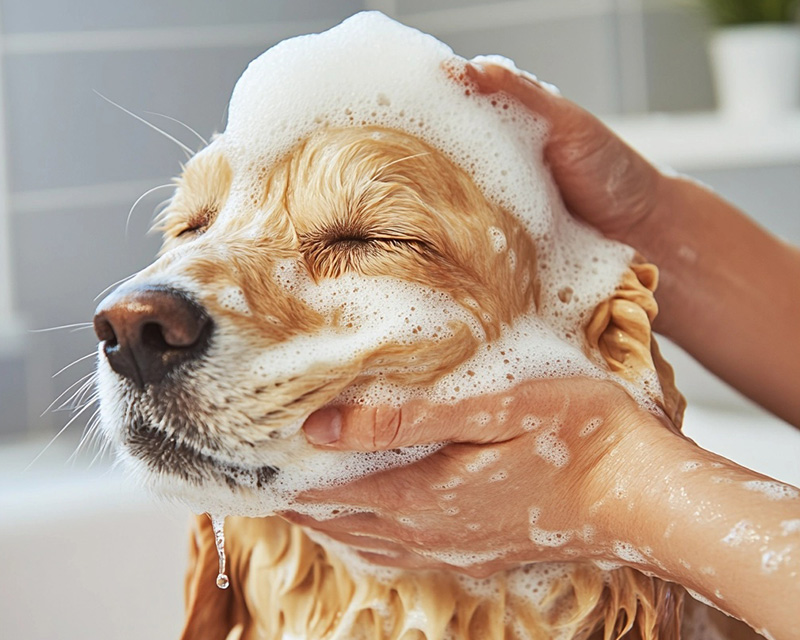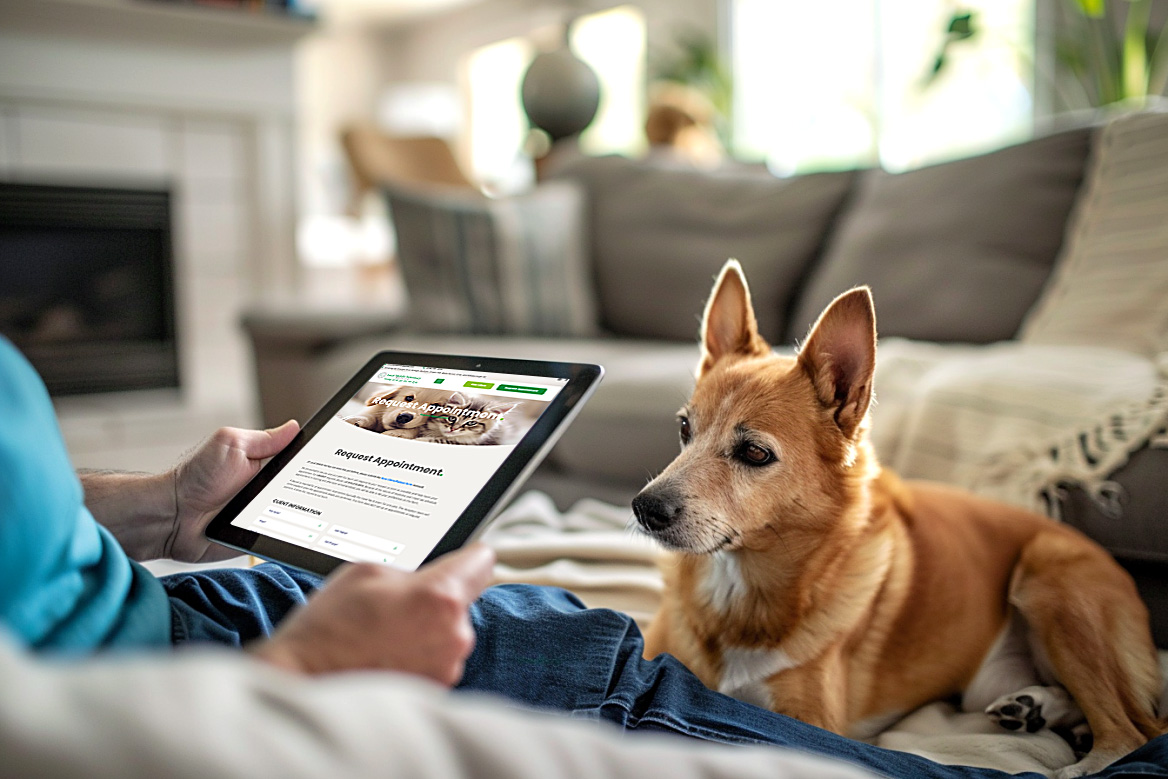- Servicing the Triangle Area: Raleigh, Durham, Chapel Hill, Wake Forest, Cary, and Hillsborough NC
Allergic Dermatitis

Why is my pet itchy?
Allergic Dermatitis is an inflammatory skin disease that most commonly occurs as a result of environmental allergies or, less commonly, food allergies. Allergic dermatitis is a common condition in this area and can be managed in a variety of ways.
Management includes decreasing exposure to allergens, modulating the immune system's response to allergens and improving the overall health of the skin so that it is less susceptible to secondary infections.
Since there is no cure for allergies, we must try and minimize exposure by:
- Ensuring your pet is on regular, effective flea and tick prevention. We highly recommend prescription preventions for fleas and ticks as most over-the-counter products do not work and some brands can actually be toxic to cats. The most common allergy in cats and dogs is to flea saliva; a single bite can cause itching for up to 2 weeks.
- Regular bathing with a nondrying/hypoallergenic shampoo to mechanically remove allergens on the skin (like pollen or other contact allergens).
- If your pet has a food allergy (which is less common) feeding a hypoallergenic food eliminates exposure to the allergen. Hypo-allergenic foods are: Hills z/d, Royal Canin Ultamino or Hydrolyzed protein, or Purina HA. But don’t forget that you can also only feed hypo-allergenic treats too!
General Recommendations for allergy treatment are:
- Bathing- If multiple areas of the body are affected: Bathing is very beneficial especially with a prescription soothing shampoo. With chronic infections, we recommend a medicated shampoo with antibiotic and antifungal medication.
- Mousse- For localized treatments (or for pets who hate baths): Topical leave-ons, like mousses can be an alternative to bathing.
- Supplements to improve skin health: Fish oil can improve skin health and decrease the immune system's response to allergenic stimulation. Fish oil can also help support kidney, nerves, brain, heart, and joint health as well. There is some recent literature suggesting that probiotics can be of benefit to skin health and allergies.
- Allergy medications or Cytopoint injections can be of benefit in controlling symptoms of allergies. We consider these medications successful if you see >50% improvement in symptoms. These medications are helpful when we can not eliminate exposure to an allergen (like with an environmental allergy).
Allergies are among the most frustrating conditions to treat and there is no one therapy that works for every pet. It is important to remember that allergic skin disease cannot be cured; it can only be managed. Flare ups are common. Be diligent with your care for your allergic pet and ensure that all members of the household (anyone who has regular contact with your pet) and pet care team (groomers, boarding facilities, dog walkers, etc.) are aware of your pet's allergies and have instructions to help avoid triggering a flare up. Due to the chronicity of allergies, your pet will likely need more visits with the veterinarian in order to best manage your pet’s care and to treat any acute flare ups. If your veterinarian recommends a follow up appointment, be aware that that appointment is important to ensure resolution of this incident and to assess response to therapies so that they will know how to treat flare ups if they occur in the future.
 How do I get my pet scheduled?
How do I get my pet scheduled?
If your pet is an existing patient of Local Mobile Vet, simply fill out the appointment request form, and we will reach out to get an appointment scheduled.
If we have never seen your pet before, fill out the New Client Form and we will reach out to help you determine if we are the right fit for you and your pet.
